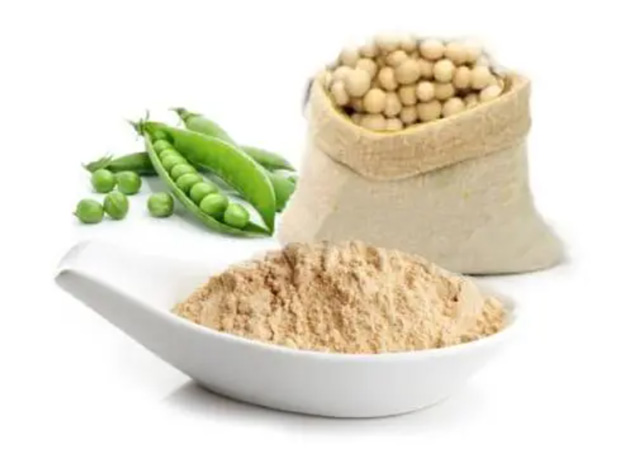Common misconceptions about organic pea protein powder often involve its taste, comparative effectiveness to animal protein, and potential as an allergen. Here is an overview of these misconceptions and the facts:
Misconception 1: It's commonly believed that organic pea protein powder has an unpleasant or strong taste. However, pea protein generally has a mild and bland flavour, making it easy to incorporate into various recipes and food products. It lacks a strong taste and blends well with other ingredients, contributing to a smooth, creamy texture in recipes. This contrasts with soy protein, which might have a mild or slightly nutty taste and occasionally a "beany" flavour, especially in less-refined forms. Both pea and soy proteins are used in various foods, such as plant-based meat alternatives and dairy substitutes, due to their favourable taste and texture.

Misconception 2: There's a belief that organic pea protein powder bulk is less effective than animal proteins like whey for muscle building and recovery. Contrarily, studies have shown that pea protein can be as effective as whey in muscle mass building, especially when consumed post-workout. While whey protein is known for quick absorption, pea protein is a strong plant-based alternative for muscle building, offering a lower environmental footprint and catering to broader dietary restrictions.
Misconception 3: Many people mistakenly think that plant proteins, like organic pea protein powder, are less healthy than animal proteins. In reality, pea protein may offer more benefits for heart health and longevity compared to animal proteins. It supports beneficial gut bacteria, aids in weight management, and contributes to reducing blood sugar spikes. Pea protein is also being researched as a tool for preventing irritable bowel syndrome. Moreover, in terms of environmental impact, producing pea protein requires significantly less land and water and results in lower greenhouse gas emissions compared to animal-based proteins.

Misconception 4: It's often thought that organic pea protein powder is hypoallergenic. While generally well-tolerated, some individuals may still have an allergy to it. Nonetheless, it's a suitable alternative for those with common food allergies like dairy and soy. However, as pea protein becomes more widely available, sensitivity among the population might increase.
In conclusion, despite some misconceptions, organic pea protein powder offers a versatile, health-friendly, and environmentally sustainable option suitable for a variety of dietary needs and preferences. It stands as a viable alternative to animal proteins and soy protein, with its unique benefits and characteristics.